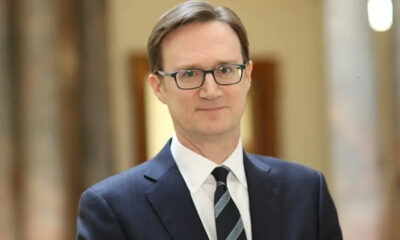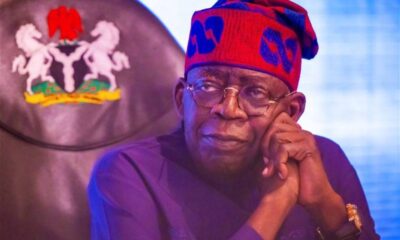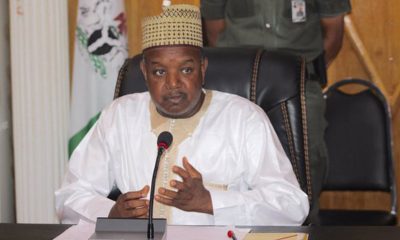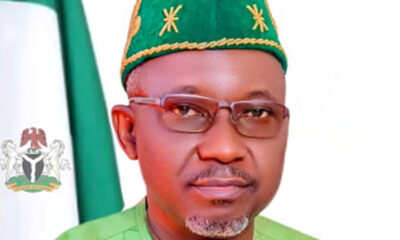Africa
Niger Coup: What options are available to Tinubu, ECOWAS?
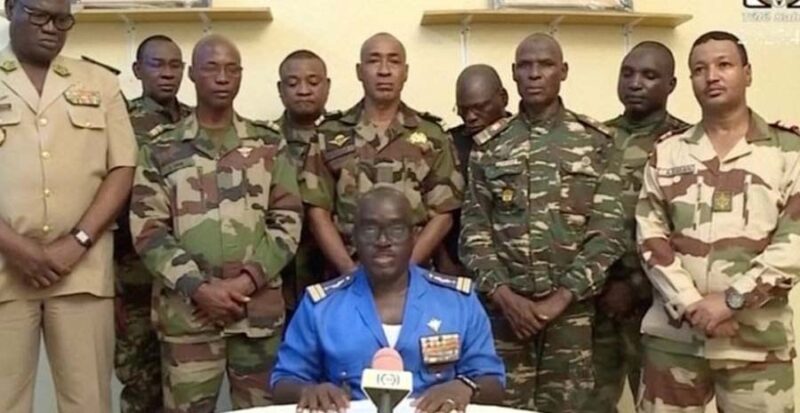
Niger Coup: What options are available to Tinubu, ECOWAS?
A news Analysis by Premium Times
As Nigeria’s President and ECOWAS Chairman Bola Tinubu prepares to host what may become a significant moment in the recent history of the West African region and his term as leader of the bloc, he is faced with a cocktail of options from which he must choose wisely.
On Sunday, leaders of ECOWAS will convene in Abuja for a special session at the request of Mr Tinubu to discuss the recent coup in Niger, the sixth in the sub-region since 2020.
ECOWAS condemned the coup with the chairperson promising that ECOWAS and the international community would do everything to defend democracy and ensure democratic governance continues to take firm root in the sub-region.
The coup in Niger has been widely condemned by the international community with the African Union (AU) giving the coup plotters 15 days to relinquish power However, locally in Niger, the coup has elicited mixed reactions as some, including the army, are in support of the presidential guards responsible for the rebellion and others against it.
Sunday’s session is expected to produce a roadmap on how to tackle the situation in Niger while also demonstrating the unacceptability of coups in the subregion as Mr Tinubu said in his first speech as leader of ECOWAS.
A source close to the Nigerian president but who does not have permission to speak to the press said ECOWAS ambassadors already made recommendations to the heads of state who will attend the meeting.
He told PREMIUM TIMES that decisions will be taken at the meeting on how to deal with the challenge in Niger.
What are the options available?
Although the ECOWAS Protocol on Democracy and Good Governance spells out steps Mr Tinubu can take or initiate in an attempt to restore constitutional rule in Niger, they are not without consequences.
“In the event that democracy is abruptly brought to an end by any means or where there is a massive violation of Human Rights in a Member State, ECOWAS may impose sanctions on the State concerned,” the protocol stipulates.
It goes further to state that the sanctions may take several forms, in increasing order of severity including refusal to support the candidates presented by the Member State concerned for elective posts in international organisations, refusal to organise ECOWAS meetings in the Member State concerned and suspension of the Member State concerned from all ECOWAS decision-making bodies.
“During the period of the suspension, the Member State concerned shall be obliged to pay its dues for the period. During the period of suspension, ECOWAS shall continue to monitor, encourage and support the efforts being made by the suspended Member State to return to normalcy and constitutional order.”
The above recommendations of the protocol may seem to be the magic wand needed to return Niger to status-quo but history has shown how ineffective the sanctions are. Mali and Burkina Faso are clear examples of where sanctions did not serve as a deterrent to coup plotters.
For Olubukola Adesina, a professor of political science at the University of Ibadan, Mr Tinubu has only two options to pick.
“It is either he talks tough or tries to use diplomacy,” she said, adding that if he talks tough, he may want to consider sanctions, travel bans or even an invasion but one cannot tell what the consequences of an invasion may be in this age and time.
On the other hand, Ms Adesina noted that ECOWAS can try to convince the coup plotters to return to democratic rule by organising elections as soon as possible especially because the coup plotters appear to have the support of the people.
“Because for a coup to be successful, it means that people are not averse to it. So the only thing we can do is to try to see how the coup leader can be convinced to convene a democratic election quickly,” she told PREMIUM TIMES.
PREMIUM TIMES reported that the coup plotters claimed that the coup was carried out due to the deteriorating security situation and the bad social and economic conditions in Niger. They have also received support from the army.
Ms Adesina, however, recommended that ECOWAS toes the line of diplomacy as oftentimes, sanctions are only symbolic.
“Coups are no longer fashionable. Democracy remains the way forward albeit fraught with its own challenges,” she added.
A former Nigerian Chief of Army Staff, Martin Agwai, expanded the options available to include diplomacy, negotiation and talks with external partners if they exist.
The retired military officer suggested that pressure from various political and economic blocs like the UN, EU, AU and ECOWAS could be deployed in removing the coup plotters legally. However, this can only work if the mutinous soldiers do not have the support of the people, he said.
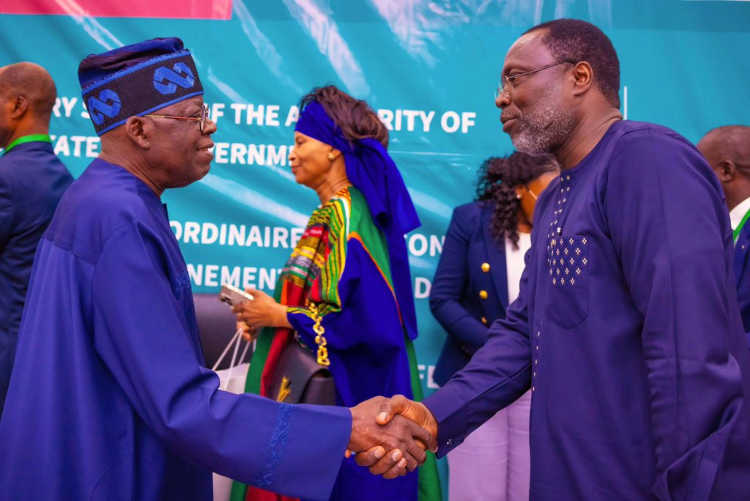
In the case of Niger, they do not only have the support of the people but also have the support of the army and so, diplomatic pressure may not work.
Another option available to Mr Tinubu according to Mr Agwai is to deploy the military to sweep out the coup plotters should they refuse to hand over power to the democratically elected president.
But Mr Agwai noted, that this will end as a bad choice as there will be loss of lives and property which may further plunge Niger into a worse situation. He added that ECOWAS would also have to ascertain if there are any external influences or interests in the coup and may consider talks.
For Gbemisola Animasawun, an associate professor at the Centre for Peace and Strategic Studies, University of Ilorin, sanctions are not efficient and should not be an option in Sunday’s talks.
“ECOWAS should negotiate with the coup leaders,” he said.
He noted that sanctions only impoverish the people and exclude the actual culprits. When this happens, the sanction becomes a tool in the hand of the coup plotters where they play on the emotions of the people, convincing them that the sanctioning power has ulterior motives aside from entrenching democracy.
This will most likely be the case in Niger given the basis upon which the coup plotters claimed to have ousted President Mohamed Bazoum and the support they have received so far, he said.
Anti-French sentiments have continued to grow strongly within French-speaking states in Africa and will be a convenient spin to use in order to rally Nigeriens against any sanctions.
Mr Animasawun noted that the coup in Niger is not entirely a surprise given the coup contagion, especially in Francophone Africa. However, to address Niger, Mr Tinubu has to choose between stability and democracy which may not necessarily be exclusive of each other but will require the president (Tinubu) to tread carefully, he said.
“Stability and Democracy because an unstable Niger has implications for Nigeria’s war on terrorism. Whatever happens in Niger has implications for our national security and geopolitical interest. It also has an implication for the personae of Tinubu as the president of Nigeria and the leader of ECOWAS,” he explained.
Contrary to the general assumption that democracy brings about stability, Mr Animasawun explained, it is not automatic because if democracy does not deliver and fails to be inclusive then there will be no stability.
“Not all undemocratic states are unstable and not all democratic states are stable,” he said, giving the example of Libya which was stable until Gaddafi was removed.
According to him, Libya was stable because it was a kind of government that met the needs of the people but for some freedoms that were curtailed. Its economic indices at the time however placed it above many economies in Africa.
“It is the push towards democracy that has made Libya now unstable,” Mr Animasawun said.
Additionally, Mr Tinubu must balance his role as the leader of ECOWAS and also as the president of Nigeria keeping in mind Nigeria’s geopolitical interest (security) not necessarily the type of government, he said.
When asked what the implication of choosing between stability and democracy will be, Mr Animasawun said while one will be realistic, the other will be symbolic.
“The realistic part is that if we go for stability, that would likely be at the expense of democracy which will take away from the symbolic position or value of President Tinubu as the leader of ECOWAS,” he explained.
A middle ground exists, he believes. It will be to find a reconciliation between stability and democracy which is quickly putting in place a transition plan as the coup leader cannot be forcefully removed as it may worsen an already bad case.
He noted that Mr Tinubu must take lessons on legitimacy and good governance from what is happening in Niger especially considering the sentiments around his own elections in Nigeria.
“One fundamental basis for successful mediation is the credentials of the mediator. If a mediator is faced with questions of credibility or legitimacy then he or she must tread cautiously,” Wilson Ijide, a retired colonel and lecturer at the Department of Psychology and Institute for Peace and Strategic Studies, University of Ibadan, said alluding to Mr Tinubu’s own challenges.
He said this crisis of legitimacy faced by Mr Tinubu will naturally affect the efficacy of the intervention by ECOWAS.
In spite of the foregoing, “the options available to Tinubu and ECOWAS ahead of Sunday’s meeting is to face reality and negotiate ways towards smooth handover to a democratically elected government within a feasible timetable,” Mr Ijide told PREMIUM TIMES, adding that there should be no grandstanding by ECOWAS on this.
Africa
Chad’s military ruler Derby declared winner of presidential election, opposition kicks
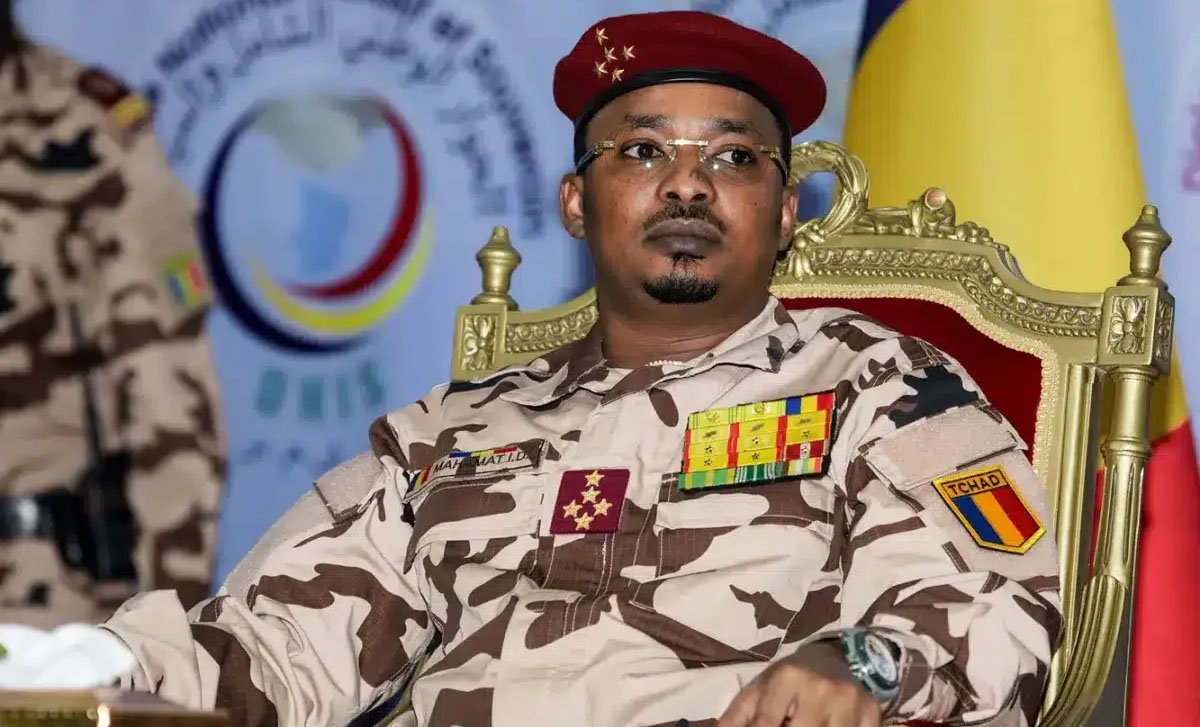
Chad’s military ruler Derby declared winner of presidential election, opposition kicks
Chad’s military leader, Mahamat Deby Itno, was declared the winner of this week’s presidential election, according to provisional results released Thursday. The results were contested by his main rival, Prime Minister Succès Masra.
The national agency that manages Chad’s election released results of Monday’s vote weeks earlier than planned. The figures showed Deby Itno won with just over 61% of the vote, with the runner-up Masra falling far behind with over 18.5% of the vote. Gunfire erupted in the capital following the announcement, though it was unclear if it was celebratory.
Preliminary results were initially expected on May 21.
Chad held its long delayed presidential election following three years of military rule, a vote that analysts widely expected the incumbent to win. Deby Itno, also known as Mahamat Idriss Deby, seized power after his father, who spent three decades in power, was killed fighting rebels in 2021.
READ ALSO:
- Detained reporter Daniel Ojukwu regains freedom after public outcry
- Rivers Assembly speaker says house leadership intact
- No change in leadership of Rivers assembly, clerk disowns Fubara’s faction
The oil-exporting country of nearly 18 million people hasn’t had a free-and-fair transfer of power since it became independent in 1960 after decades of French colonial rule.
Hours ahead of Thursday’s announcement, Masra published a speech on Facebook accusing the authorities of planning to manipulate the outcome.
During the 11-minute speech, Masra appeared in a blue suit at a podium with the national flag in the background and claimed victory, saying the incumbent was planning to reverse the outcome of the vote. He called on Chad’s military, police and other security forces to stop following Deby Itno’s orders.
“These orders will lead you to side with the wrong side of Chad’s history, these orders will lead you to fight your brothers and sisters, these orders will lead you to commit the irreparable and unforgivable,” he said in the speech. “Refuse to obey these unjust orders!”
There was no immediate response from the president’s office.
Chad’s military ruler Derby declared winner of presidential election, opposition kicks
Africa
Civil societies, Togo president on war path over new constitution eliminating elections

Civil societies, Togo president on war path over new constitution eliminating elections
The hope of having new leader in Togo has been dashed following the abolition of presidential elections in the West Africa country.
The development follows the signing of a controversial and widely condemned new constitution by President Faure Gnassingbe
The new constitution does not allow for election to the highest office in the land, an arrangement that will see the Gnassingbes consolidate their hold on power and extend their six-decade-long rule.
A statement from Gnassingbe’s office on Monday stated that, under the new legislation, only the parliament will have the power to select the president, eliminating direct elections.
According to Africa News, the election commission on Saturday announced that Gnassingbe’s ruling party had won a majority of seats in the nation’s parliament.
The report revealed that there was a crackdown on civic and media freedoms ahead of the vote, as the government banned protests against the proposed new constitution and arrested opposition figures.
READ ALSO:
- Rivers crisis festers as new factional Speaker emerges
- Cybersecurity levy suspension tears lawmakers apart, speaker overrules
- EFCC to arraign Sirika, daughter over fresh N2.7 billion contract scam
Also, the electoral commission banned the Catholic Church from deploying election observers.
In mid-April, a French journalist who arrived to cover the elections was arrested, assaulted and expelled. Togo’s media regulator later suspended the accreditation process for foreign journalists.
Provisional results showed the ruling Union for the Republic (UNIR) party won 108 out of 113 seats in parliament, and 137 out of 179 positions in the senate.
The new constitution also increases presidential terms from five to six years and introduces a single-term limit.
However, the almost 20 years that Gnassingbe has already served in office would not count toward that tally.
Togo has been ruled by the same family for 57 years, initially by Eyadema Gnassingbe and then by his son, Faure Gnassingbe, who took office after elections that the opposition described as a “sham.”
The political opposition, religious leaders and civil society say the proposed new constitution makes it likely that Gnassingbe will stay on when his mandate expires in 2025.
They also fear that the creation of a figure similar to a prime minister, to be selected from the ruling party, could become another avenue for Gnassingbe to extend his grip on power even beyond that new term.
Civil societies, Togo president on war path over new constitution eliminating elections
Africa
Father mourns 14-year-old daughter poisoned at school, says ‘I’ve failed you my baby’
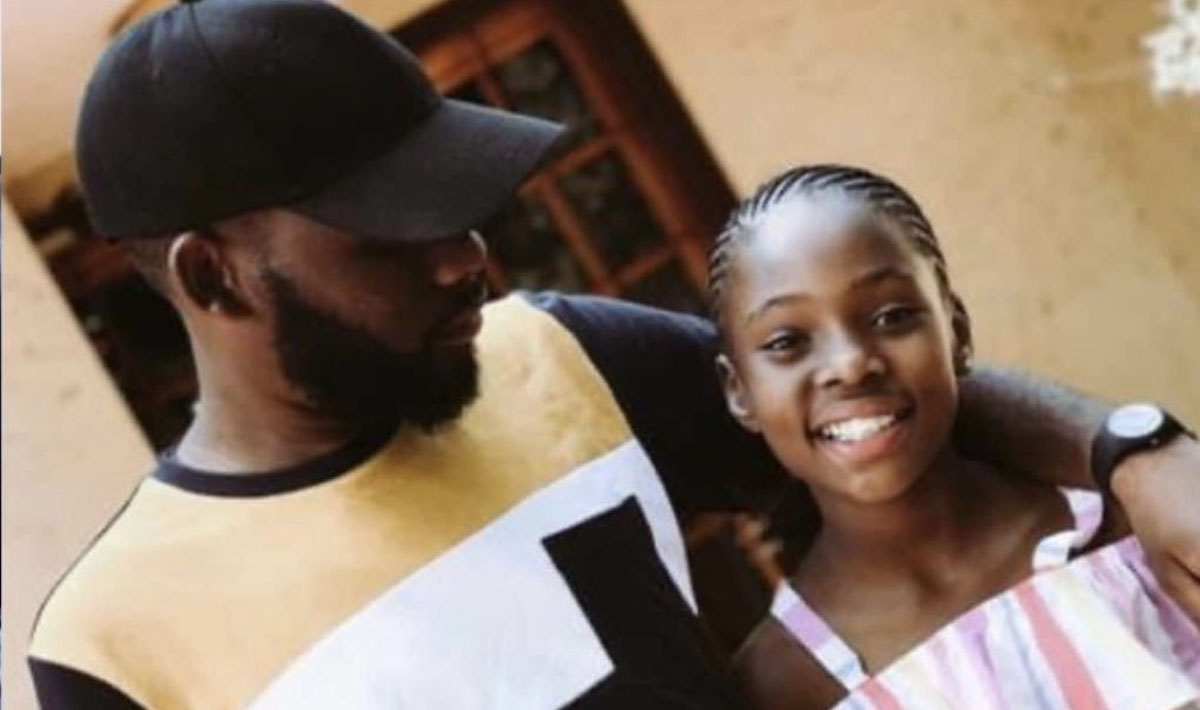
Father mourns 14-year-old daughter poisoned at school, says ‘I’ve failed you my baby’
A father has mourned his 14-year-old daughter, Nomfundo Palesa Tyler Khumalo, who was allegedly poisoned at her school in South Africa.
It was gathered that the incident happened on 8 April 2024 and she passed away on 25 April.
 Details surrounding the circumstances of her death remain unclear.
Details surrounding the circumstances of her death remain unclear.
A murder case has been opened, and investigations are underway.
The family of Nomfundo is currently struggling to deal with the loss and seeking answers as to why and by whom she was targeted.
READ ALSO:
- Zamfara APC defends Mattawale, says protesters are rented crowd
- SERAP sues Wike, 36 govs over N5.9tn, $4.6bn loans
- Chelsea thrash West Ham to stay on track for Europe
Nomfundo’s father, Gift, on Sunday, May 5, wrote a heartfelt message on X to pay tribute to her.
“Never in my wildest dreams did I think you would end up on this page I’ve failed you my baby , should’ve protected you better we even spoke about you being home schooled after you recover unfortunately.. I’m so sorry If Possible I’d easily give up my life for yours,” he wrote on Sunday, May 5.
In an earlier post, he wrote: “I wish the after life is kinder to souls as precious as yours , there is no boundry for my love to you my baby Not even Death itself Don’t forget to visit us in our dreams more exp your Mother It’s never goodbye when there an after life promised I’ll see you soon my child.”
Father mourns 14-year-old daughter poisoned at school, says ‘I’ve failed you my baby’
-

 Business3 days ago
Business3 days agoDollar crashes against Naira at official market
-

 News2 days ago
News2 days agoUsing pre-registered SIM card may land you in jail, NCC warns
-
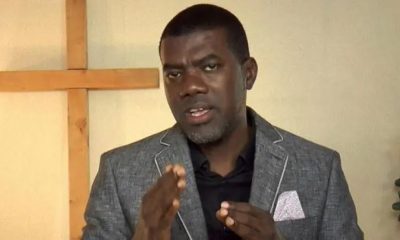
 News2 days ago
News2 days agoWike, Fubara are ego-driven, crude – Reno Omokri
-

 metro3 days ago
metro3 days agoThree police officers sentenced to life imprisonment in Anambra
-

 metro1 day ago
metro1 day agoFire guts new NNPCL tank farm in Lagos
-

 International2 days ago
International2 days agoUK says it’s developing radio frequency to blast out drones
-

 News2 days ago
News2 days agoUpdated: Reps condemn assault on Nasarawa female doctor by patient family
-

 News2 days ago
News2 days agoPolice grill Osun monarch, Ataoja of Osogbo, over petition

